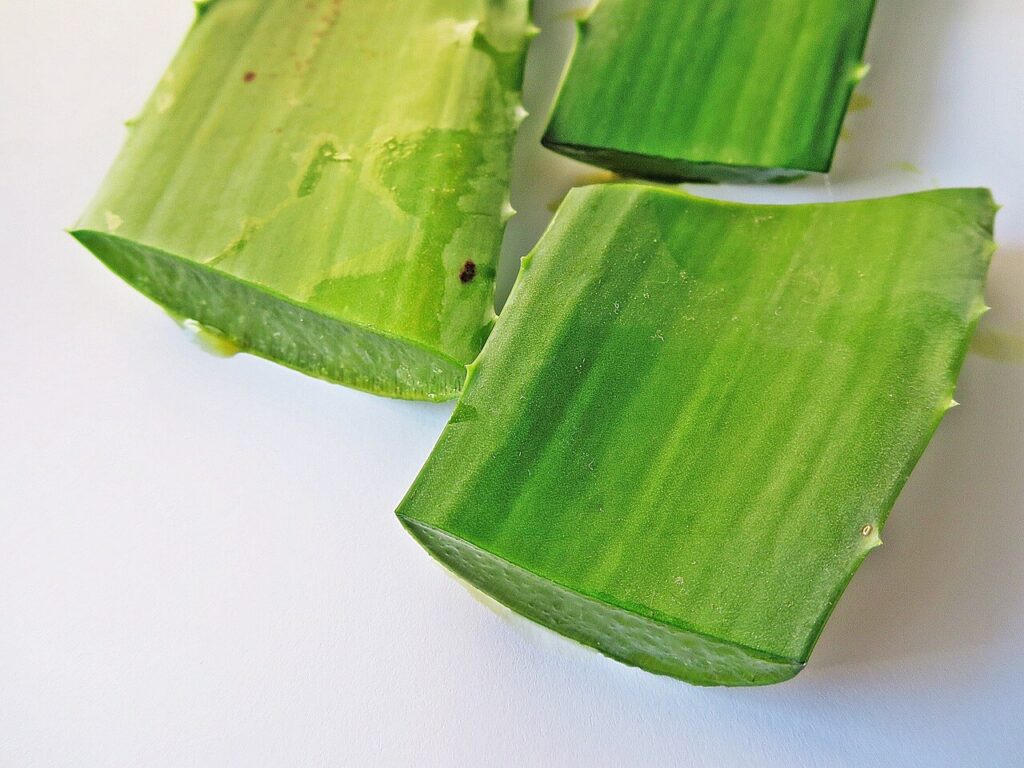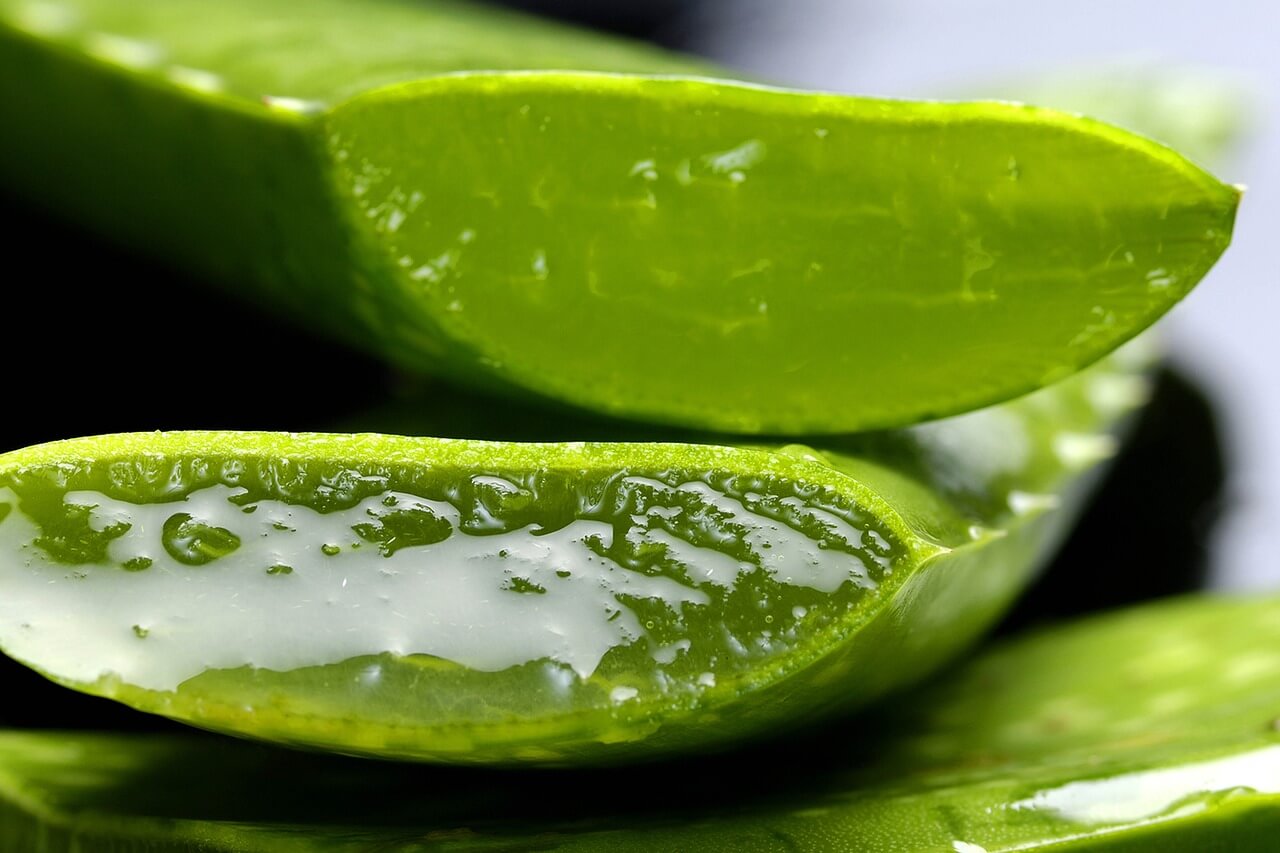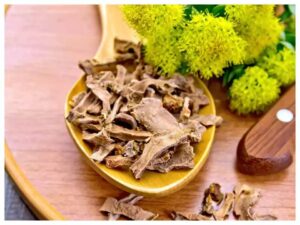Aloe Vera, also known as the “miracle plant,” has been used for thousands of years for its medicinal and cosmetic properties. But, where did it come from and how was it first discovered?
The origins of Aloe Vera can be traced back to ancient Egypt, where it was known as the “plant of immortality” and was often used in the mummification process. The plant was also depicted in paintings on the walls of tombs and temples, further emphasizing its importance in ancient Egyptian culture.
From Egypt, the use of Aloe Vera spread to other cultures, including the Greeks and Romans, who used the gel from the plant’s leaves to treat wounds and skin conditions. The plant was also known in ancient China, where it was used for digestive issues and as a laxative.
The plant was first scientifically described by Carl Linnaeus in 1753, who named it Aloe Vera. The name “Aloe Vera” is derived from the Arabic word “alloeh,” which means “shining bitter substance,” and the Latin word “vera,” which means “true.”
Despite its long history of use, it wasn’t until the 20th century that Aloe Vera began to receive widespread recognition for its medicinal properties. In the 1930s, a commercial product was developed from the gel of the Aloe Vera plant, and since then, it has been widely used in cosmetic and pharmaceutical products, such as moisturizers, sunscreens, and wound dressings.
Today, Aloe Vera is cultivated all over the world and is widely used for its health benefits. It is considered a natural remedy for a variety of conditions, including skin conditions, digestive problems, and immune system support.

Benefits of Aloe Vera for Health
Aloe Vera, commonly known as the “miracle plant,” has been used for thousands of years for its medicinal properties. The gel found inside the leaves of the Aloe Vera plant is rich in vitamins, minerals, and antioxidants, making it a popular ingredient in many health and beauty products. In this article, we will discuss the numerous benefits of Aloe Vera for health.
Improves Skin Health
Aloe Vera is widely known for its ability to soothe and moisturize the skin. Its anti-inflammatory properties help to reduce redness and irritation, making it a popular ingredient in skincare products. Aloe Vera also contains antioxidants that help to protect the skin from damage caused by free radicals. This makes it an effective ingredient for treating sunburns and reducing the appearance of fine lines and wrinkles.
Supports Digestive Health
Aloe Vera has long been used as a natural remedy for digestive problems. The gel contains natural enzymes that help to break down food and improve digestion. Aloe Vera also helps to regulate the pH levels in the digestive system, reducing the risk of acid reflux and indigestion. Additionally, Aloe Vera has been shown to have a soothing effect on the intestinal lining, making it an effective treatment for irritable bowel syndrome (IBS) and other digestive disorders.
Boosts Immune System
Aloe Vera is rich in vitamins and minerals, including vitamins A, C, and E, and antioxidants, making it an effective ingredient for boosting the immune system. Its antibacterial and antiviral properties also help to protect the body from harmful pathogens, reducing the risk of infections and illnesses. Regular consumption of Aloe Vera can also help to improve overall health and promote healing from within.
Helps Control Blood Sugar Levels
Recent studies have shown that Aloe Vera may help to control blood sugar levels, making it an effective treatment for diabetes. Aloe Vera has been shown to improve insulin sensitivity, which helps to regulate blood sugar levels and reduce the risk of complications associated with diabetes. Additionally, Aloe Vera has been shown to improve cholesterol levels, reducing the risk of heart disease in people with diabetes.
Promotes Healthy Hair and Scalp
Aloe Vera is also known for its benefits for the hair and scalp. Its moisturizing properties help to keep the scalp hydrated and reduce the risk of dryness and itching. Aloe Vera also helps to improve blood circulation to the scalp, promoting healthy hair growth. Additionally, the gel contains vitamins and minerals that are essential for healthy hair, making it an effective ingredient in many hair care products.
In conclusion, Aloe Vera is a versatile and natural ingredient with numerous health benefits. From improving skin health to boosting the immune system, Aloe Vera is a powerful plant that can help to improve overall health and wellbeing. Whether consumed or used topically, Aloe Vera is a valuable addition to any health and wellness routine.

The Nutritional Components and Core Ingredients of Aloe Vera
Vitamins and Minerals
Aloe Vera is rich in essential vitamins and minerals, including vitamins A, C, and E, and minerals such as calcium, magnesium, and potassium. These vitamins and minerals play an important role in maintaining overall health and wellbeing. Vitamin A, for example, is essential for healthy skin and vision, while vitamin C helps to boost the immune system and improve skin health.
Antioxidants
Antioxidants are substances that protect the body from damage caused by free radicals. Aloe Vera is rich in antioxidants, including polyphenols, beta-carotene, and vitamins C and E, which help to protect the body from oxidative stress and reduce the risk of chronic diseases. These antioxidants also help to protect the skin from damage caused by the sun and other environmental factors, making Aloe Vera a popular ingredient in skincare products.
Enzymes
Aloe Vera contains natural enzymes that help to break down food and improve digestion. The gel is also rich in anthraquinones, a group of compounds that have a mild laxative effect and help to regulate bowel movements. These enzymes and anthraquinones make Aloe Vera an effective treatment for digestive problems, including constipation, indigestion, and irritable bowel syndrome (IBS).
Polysaccharides
Polysaccharides are complex sugars that are found in Aloe Vera. These polysaccharides have been shown to have anti-inflammatory and immune-boosting properties, making Aloe Vera an effective ingredient for improving overall health and wellbeing. Additionally, polysaccharides help to keep the skin hydrated and reduce the risk of dryness and itching, making Aloe Vera a popular ingredient in skincare products.
Amino Acids
Aloe Vera is also rich in amino acids, the building blocks of protein. These amino acids help to support the growth and repair of cells, making Aloe Vera an effective ingredient for improving skin health and reducing the appearance of fine lines and wrinkles. Additionally, amino acids help to boost the immune system and reduce the risk of infections and illnesses.
In conclusion, Aloe Vera is a powerful plant with a variety of health benefits. Its rich content of vitamins and minerals, antioxidants, enzymes, polysaccharides, and amino acids make it an effective ingredient for improving skin health, boosting the immune system, and supporting digestive health. Whether consumed or used topically, Aloe Vera is a valuable addition to any health and wellness routine.

Methods for Consuming Aloe Vera: Cooking and Supplements
Aloe Vera is a versatile and nutritious plant that has been used for thousands of years for its health benefits. There are several ways to consume Aloe Vera, including cooking and supplements, each with its own set of advantages and benefits. In this article, we will discuss the different methods for consuming Aloe Vera and the benefits of each.
Cooking with Aloe Vera
Aloe Vera can be added to a variety of dishes to increase their nutritional value. The gel found inside the leaves of the Aloe Vera plant is the most commonly used part of the plant in cooking. This gel can be added to smoothies, juices, and salads, or used as a substitute for cooking oils.
When cooking with Aloe Vera, it is important to choose high-quality, organic Aloe Vera gel to ensure the purity and potency of the product. Additionally, it is important to note that cooking can destroy some of the plant’s beneficial compounds, so it is best to consume Aloe Vera in its raw form when possible.
Supplements
Aloe Vera supplements are another convenient way to consume the plant. These supplements are available in a variety of forms, including capsules, gummies, and liquid extracts. Aloe Vera supplements are often used for their digestive and immune-boosting benefits, as well as their ability to improve skin health.
When choosing an Aloe Vera supplement, it is important to look for a product that is made from high-quality, organic Aloe Vera and that has been tested for purity and potency. Additionally, it is important to follow the recommended dosage instructions on the product label and to speak with a healthcare provider before starting any new supplement regimen.
Topical Applications
In addition to consuming Aloe Vera orally, the plant can also be applied topically to the skin. Topical Aloe Vera products are often used for their moisturizing and anti-inflammatory benefits, as well as their ability to improve the appearance of fine lines and wrinkles.
When applying Aloe Vera topically, it is important to choose a product that is made from high-quality, organic Aloe Vera and that has been tested for purity and potency. Additionally, it is important to follow the instructions on the product label and to patch test the product before using it on a large area of skin.
In conclusion, Aloe Vera is a versatile and nutritious plant that can be consumed in a variety of ways, including cooking, supplements, and topical applications. Whether consumed orally or applied topically, Aloe Vera is a valuable addition to any health and wellness routine. By choosing high-quality, organic products and following recommended dosages and instructions, individuals can maximize the benefits of this powerful plant.

Potential Side Effects of Aloe Vera and When to Avoid Taking It
Aloe Vera is a versatile and nutritious plant that has been used for thousands of years for its health benefits. While the plant is generally considered safe, there are some potential side effects and situations in which it should be avoided. In this article, we will discuss the potential side effects of Aloe Vera and when to avoid taking it.
Possible Side Effects
Consuming Aloe Vera in moderation is generally considered safe. However, in some individuals, consuming large amounts of Aloe Vera can cause digestive upset, including cramping, diarrhea, and nausea. Additionally, topical use of Aloe Vera can cause skin irritation and allergic reactions in some individuals.
Aloe Vera may also interact with certain medications, including diuretics, laxatives, and blood sugar-lowering medications. It is important to speak with a healthcare provider before taking Aloe Vera if taking any of these medications, as well as before starting any new supplement regimen.
Individuals with Medical Conditions
Individuals with medical conditions, including liver disease, colitis, and kidney disease, should avoid consuming Aloe Vera or use it with caution. It is important to speak with a healthcare provider before taking Aloe Vera if you have any medical conditions.
Aloe Vera has the potential to interact with certain medications, including:
- Diuretics: Aloe Vera may increase the risk of potassium loss when taken with diuretics.
- Laxatives: Aloe Vera may enhance the effects of laxatives, potentially increasing the risk of dehydration and electrolyte imbalances.
- Blood sugar-lowering medications: Aloe Vera may lower blood sugar levels, potentially leading to hypoglycemia when taken with blood sugar-lowering medications.
- Nonsteroidal Anti-inflammatory Drugs (NSAIDs): Aloe Vera may enhance the risk of stomach irritation when taken with NSAIDs.
It is important to speak with a healthcare provider before taking Aloe Vera if you are taking any of these medications, as well as before starting any new supplement regimen.

Here are 8 useful links that provide information on Aloe Vera:
- Mayo Clinic: https://www.mayoclinic.org/drugs-supplements-aloe/art-20366716
- National Center for Complementary and Integrative Health: https://nccih.nih.gov/health/aloe-vera
- WebMD: https://www.webmd.com/vitamins/ai/ingredientmono-607/aloe-vera
- Examine.com: https://examine.com/supplements/aloe-vera/






